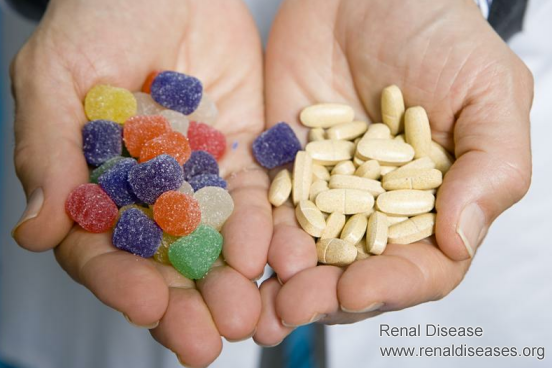Whatsapp: +8615512139310
- Email us:
 Proteinuria is a common symptom of kidney disease. Without timely treatment, it can affect renal function. To reduce proteinuria, besides steroids, these two drugs are also helpful. Now go on reading to learn more information.
Proteinuria is a common symptom of kidney disease. Without timely treatment, it can affect renal function. To reduce proteinuria, besides steroids, these two drugs are also helpful. Now go on reading to learn more information.
Proteinuria is the product of impaired renal function. There is no protein in the urine, but when the basement membrane of the kidney is damaged, the protein is no longer controlled. Some of the proteinuria runs to the urine and leaks out to form proteinuria.
The leakage of protein will make the pore of the renal filtration membrane become larger and larger, and the function of the renal filtration will become worse and worse, aggravating the disease. Delaying progress in renal function and lowering proteinuria levels are part of the treatment details.
Kidney patients are familiar with steroids, which can help reduce proteinuria and protect renal function by eliminating kidney inflammation. But steroid dependence and side effects make some patients have to give up the use.
In addition, there are two drugs also have the function of reducing proteinuria and protecting kidneys. Their real identity is antihypertensive drugs.
To reduce proteinuria and protect kidneys, besides steroids, you can try these two types of medications.
These two drugs are initially used to treat hypertension. The researches of scientists have shown that these two drugs can also improve the glomerular filtration rate, reduce the burden of renal filtration, reduce the level of proteinuria and achieve the goal of protecting the kidney by reducing intraglomerular hypertension in the kidney.
Usually, patients with serum creatinine below 265 umol/L and two symptoms of hypertension and proteinuria can take these two drugs, and steroid-sensitive patients can also take them together.
A small number of patients taking ARB drugs have increased creatinine, which is also a particular obvious side effect. We all know that too high creatinine is harmful to the kidney. It is generally acceptable to control creatinine elevation within 30% after taking such drugs, and creatinine will recover as the condition improves. But if it is more than 30%, you should reduce it or change it. For example, if you have a creatinine value of 150 micromol/L now, it's not a big problem if creatinine rises below 195 umol/L after taking it.
ARBs themselves have a tendency to cause elevated blood potassium, so if there are kidney patients with high blood potassium, we should pay more attention to monitoring blood potassium level. During taking this kind of medicine, pay attention to eating less potassium-rich foods such as bananas, mango, longan, kelp, spinach and mushrooms, etc.
Note: Patients with congenital bilateral renal artery stenosis, or pregnant women should not take such drugs.
Besides steroids, you can try ACEI or ARBs to reduce proteinuria and protect kidneys. For more information on proteinuria treatment, please leave a message below or contact online doctor.